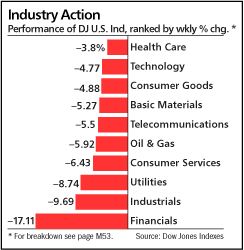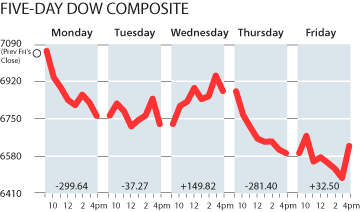In 1980, the first Whole Foods Market (WFMI) was opened by John Mackey, a liberal, tree-embracing bohemian with a vision of human and earth symbiosis. With the most righteous of intentions, Mackey grew his business into the nation’s largest natural food vendor. Today, Whole Foods is a hot-spot for health nuts and selective shoppers alike. Listening to Whole Foods’ management, you get the sense that these people are genuinely out there to improve everybody’s wellbeing, especially by helping us get healthier.
As it turns out, the best way to do that is by growing Whole Foods into a mammoth corporation, even if that means eating up the competition. On August 28, it acquired Wild Oats, the next largest competitor, and consequentially has control of practically the entire organic grocery industry now. In fact, the Federal Trade Commission thinks they have a monopoly but the reality is there are plenty of supermarket competitors out there, from Kroger to Safeway; they just aren’t as health-friendly as Whole Foods. Management has plans in place to take advantage of its market leadership position and they fully expect the Company to become the nation’s #1 health guru. When you have true concern for your customers, success inevitably seems to follow. One Company that follows similar guidelines is Google (GOOG), which has a nice $163 billion market capitalization. Google strives to provide unbiased, fair search results as it follows a company motto of “don’t be evil.” The moral of the story: always bet on the good guy, because ultimately he will head in the right direction; up.
Whole Foods is a great example of a modern, progressive Company that is ahead of the curve. Fatty, colored, preserved, brand name foods no longer hold the same value that they once did, and the well-being of body and environment are becoming more and more a part of the “in” society. The Company has a massive competitive advantage in the fact that it is now the only major organic grocer in the country. It already charges a premium for the majority of its products, which should only increase as synergies from the Wild Oats acquisitions are realized. Other supermarkets are trying to break into the huge market that has become the organic food industry, but selling “normal” food alongside organic food does not have the same market penetration, and the variety is not near what Whole Foods offers. As food prices have soared in recent months, led by increases from corn and wheat, Whole Foods has not seen a significant dent in sales. In fact, as conventional foods become more expensive, the premium products Whole Foods offers actually become a bit more attractive from a relative value standpoint.
Organic food revenue has been increasing at an annual rate of approximately 18.7%, and there are no signs of it slowing down. In 1997, organic food represented 0.8% of the entire food market and by the end of 2006 it was 2.8%. Whole Foods gathered roughly 35% of U.S. organic food revenue last year, approximately $5.8 billion, and this was before the acquisition of the second largest player in the space, Wild Oats. Including Wild Oats, Whole Foods will account for almost half of all U.S. organic food revenue. Another point deserving mention is that Whole Foods opened a record twenty-one stores during its fiscal year 2007, and it plans to open just as many in 2008. In a market that can grow between 15% and 20% in any given year, business looks promising for Whole Foods, especially if it is able to gain relative market share for itself. By averaging the annual growth rates of organic and total food sales from 1997 through 2006 and applying this average rate, one finds that organic food sales should be roughly $33 billion by 2010, representing 4.8% of the total food market. Whole Foods’ management stated that it expects to generate over $12 billion of revenue by 2010 and as such, it would command over 1% of the U.S. food market.
As a long-term buy and hold, Whole Foods is highly promising and its future looks bright for years to come. In a few years it will surely be a nationwide icon of organic nutrition. The Company is currently in the middle of an exhaustive integration effort to incorporate Wild Oats into its operations, and therefore I would not recommend it as a short term play, as value will not increase significantly for some time. The Company will be spending heavily all year and its expenses will be high, which represents a good opportunity to invest in the Company on weakness. The stock value should stay relatively flat throughout 2008 before accelerating sometime next year as new store openings and improvements start paying off. With a dividend yield of 2.13, the stock represents a solid value play until management is able to fully integrate the Wild Oats acquisition and begin to benefit from the synergies.
Written by David Urani a Research Analyst for Wall Street Strategies (www.wstreet.com) specializing in the homebuilding, staffing, medical devices, and logistical services industries.
Subscribe to:
Post Comments (Atom)


No comments:
Post a Comment